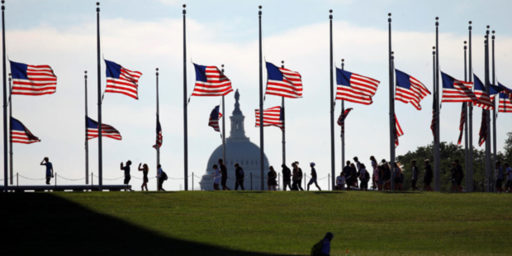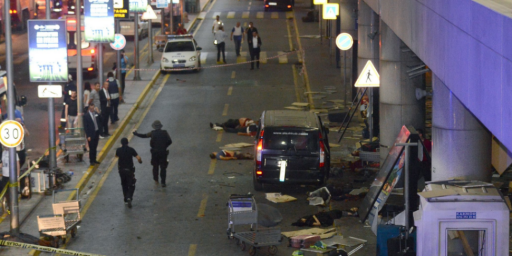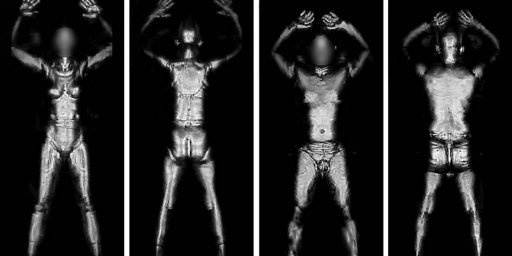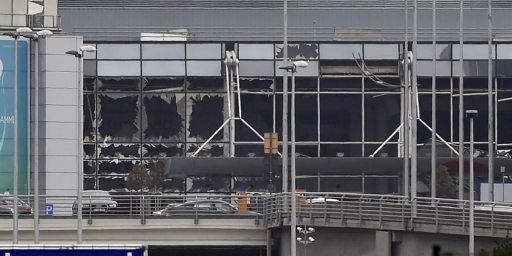Airport Security: Part Three
As James noted in this post, airport security screening is becoming an issue again. First the easy part: security searches at airports have been looked at by the Supreme Court and have been found to be Consitutional. I know, I know: I’m not a lawyer. But this guy is, and I think most will agree he is a pretty good authority to turn to on this issue.
As for the idea of a profiling policy, I happen to agree with James and Maureen (ick…Hell must be quite cold today) that having one would be a good idea. The problem is that we can’t go with a simple profile. The problem is that the terrorist might learn what the profile is and then come up with a way around it. Remember Johnny “Taliban” Walker Lindh? Give him a shave, put him in typical clothes for a person his age and that kid from Marin California might sail right through any simple airport profile. A simple profile can be beaten by the “Carnival Booth” strategy. This is where the terrorists send in individuals in an attempt to learn about the profile and thus find its weak points.
For a profile to work, in my view, the profile would have to be Bayesian in nature. That is, the probability that any given passanger is a terrorist is determined by the profile. When a person crosses a certain threshold they would be flagged for more scrutiny. The information gained would also be fed into the profile, updating the probabilities. Also, the system would have note the number of flags. Thus, if the terrorist start sending lots of people through to learn about the profile, there would be more flags. The more flags would indicate that the terrorists are up to something and security should probably tighten up. Also, the profile would have to be augmented with random searches as well that feed information into the profiling process. It would also be a good idea to tie it all into various intelligence/law enforcement agencies as well.
This is where I think the Bush Administration has done a pretty bad job. I was hoping that the Department of Homeland Security (DHS) would solve some of the problems of having various intelligence/law enforcement agencies talking to each other and sharing information. Information is, in my view, going to be a critical weapon in the war on terrorism. Knowing who the terrorists are, where they are, where their money is, and so forth are of the utmost importance. Having a way of sharing this information amongst other agencies including airport security screening would make alot of sense (which of course, is why the government probably wont do much about it).
As for Maureen, I somehow think that nothing would make her happy. Note that she herself complains about the simple screen that the government uses,
I get flagged for extra security every time I buy a one-way ticket, which seems particularly lame. Doesn’t the T.S.A. realize that a careful terrorist plotter like Mohammed Atta could figure this out and use his Saudi charity money to pop for round trips even if the return portion gets wasted?
Maureen, dear, flagging people with one-way tickets is a very crude screen. It is also one that highlights the problem I have noted above: a crude screen can be easily beaten. The type of profile/screen that I am talking about would be much more sophisticated and would probably require that a fair amount of information on people be kept in some database somewhere. Somehow I don’t think somebody who has been as critical of the Patriot Act as Dowd will be happy with the idea of more data being kept on here. But, hey…maybe I’m wrong.





